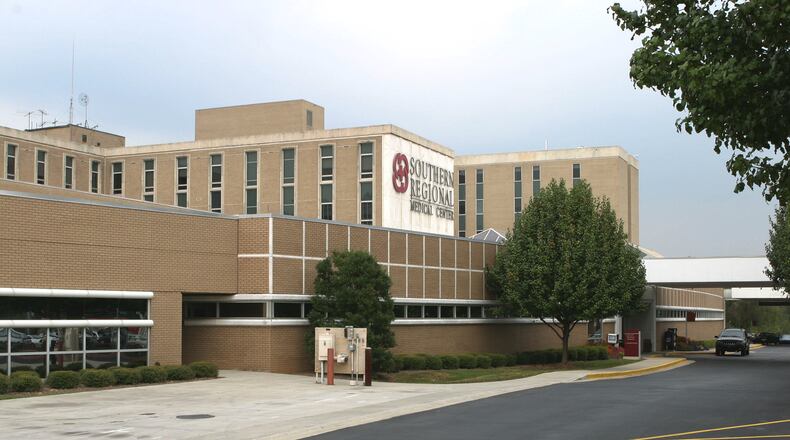The Clayton County Board of Commissioners recently voted to hire a consulting firm to help the county find a financial partner to save its hospital — Southern Regional Medical Center.
The Riverdale hospital’s presence is essential to the health of Clayton County and metro Atlanta citizens and our economy. It employs more than 1,500 people and creates many jobs in surrounding physicians’ offices and businesses. Its emergency department is part of our international airport’s response plan and serves as an accredited chest pain center and an advanced primary stroke center.
While Southern Regional is not currently classified as a safety net hospital, it admits and treats a large number of indigent patients. Its emergency department sees more than 74,000 patients yearly, 30 percent of whom are uncompensated. And the hospital delivers more than 3,000 babies annually, with 80 percent covered by Medicaid at a reimbursement rate of 65 percent.
In fiscal year 2014, the cost of providing free care to patients topped $21 million, placing an enormous financial stress on the hospital. These uncompensated costs have forced its board of directors and management team to evaluate all options for sustaining the hospital. If no indigent care funding sources can be found, Southern Regional will not be able to continue providing the services it now provides and may have to close its doors.
The closure of Southern Regional’s emergency department would have severe ramifications on surrounding metro Atlanta hospitals, since more than 200 people daily will have to seek care elsewhere. We believe an ongoing plan to invest in capital improvements including renovations and equipment upgrades or replacement is also critical to ensure the long-term viability of Southern Regional.
These challenges may seem overwhelming and unobtainable, but there are examples of distressed Atlanta hospitals that have benefited from the combined efforts of community and governmental support.
Grady Health System is an excellent example. Although Grady Memorial Hospital is larger and cares for even more underinsured people, there are many parallels with Southern Regional. Community support has allowed Grady to recover and build service lines that attract more patients and improve its bottom line.
There is still time to save Southern Regional, which has has a management services agreement with Emory Healthcare, but solutions must be found soon. As chairman of the hospital’s board, I can assure you we are working hard to find solutions and to convey the importance of the hospital to the community.
I joined Southern Regional as a physician more than 33 years ago after completing my education and training at Emory University. I chose to practice here because I saw the need for high quality medical care in the community.
A patient I cared for soon after I started practicing in Clayton County illustrates why I came to the area and underscores the value of Southern Regional. An IV drug-abusing young woman arrived in the emergency department in extremely bad condition. She chose Southern Regional because she knew that she would not be turned away. She was critically ill and nearly died from a heart valve infection.
Southern Regional was her last chance for survival. Not only did she survive and recover, but she changed her life with a career, a marriage and children. I became aware of this many years later when she walked into my office and paid for her care. Her presence alone was payment enough for us and made us proud of the mission our hospital provides to the community.
Metro Atlanta and Georgia leaders have worked together for years to solve problems and attract jobs. We won the bid for the 1996 Summer Olympics and have attracted major employers including KIA, Porsche and Mercedes-Benz and a rapidly growing movie production industry. These successes are the result of vision and partnerships among civic and community leaders.
Can we save Southern Regional? Of course we can, and we must.
Dr. Richard C. Prokesch is an infectious diseases specialist and chairman of the board of Southern Regional Medical Center.
About the Author




